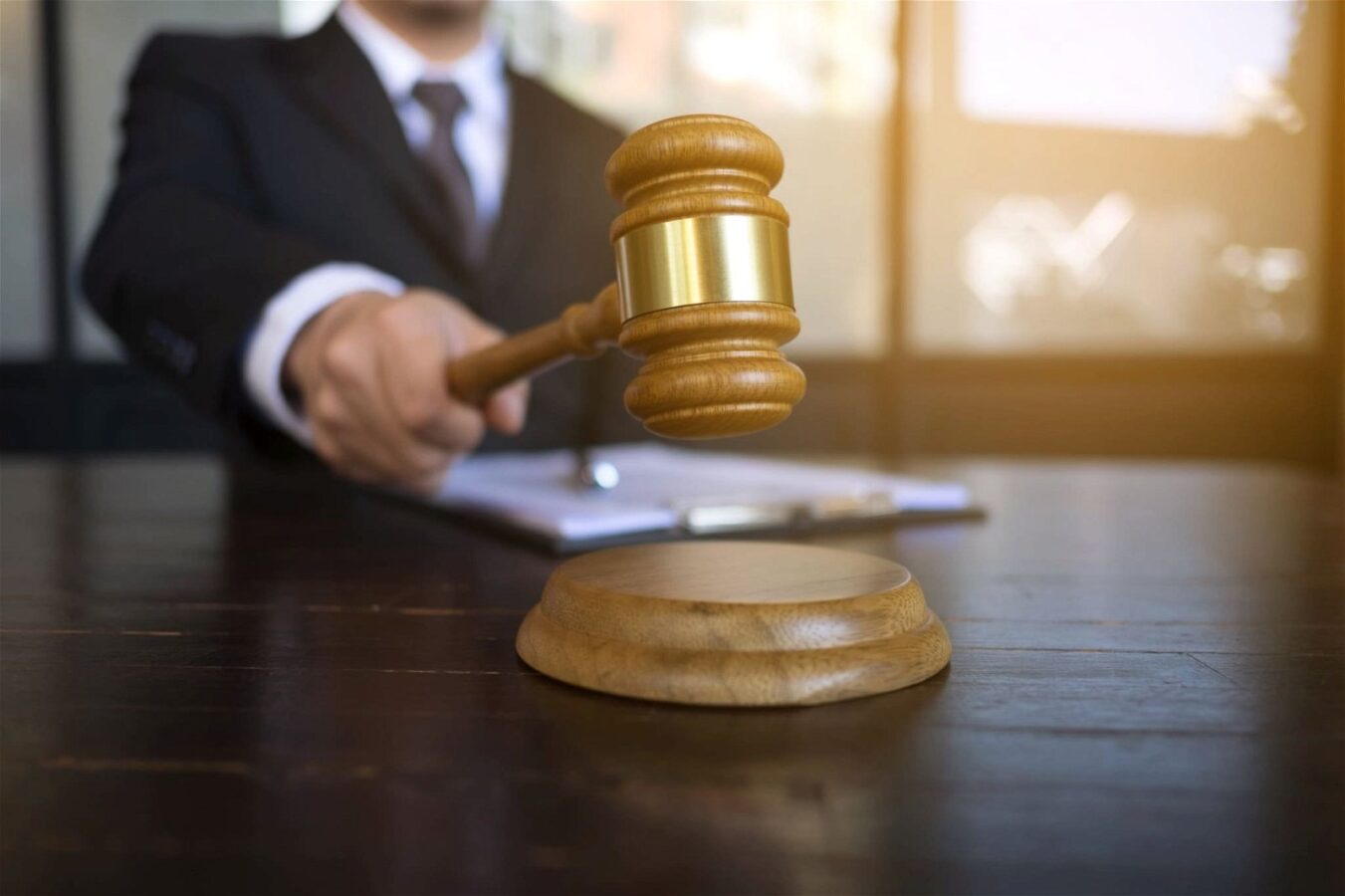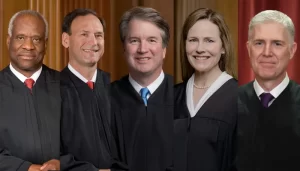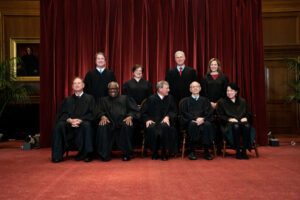When an Appellate Court Upholds a Verdict
In the intricate world of law and justice, the role of appellate courts is crucial. When an appellate court upholds a verdict, it signifies a pivotal moment in the legal process. This article delves into the nuances of appellate courts, the reasons behind verdict upholding, and the impact it has on the involved parties. Join us on this journey through the labyrinth of appeals and judgments.
Understanding Appellate Courts
The Hierarchical Structure
Appellate courts, also known as appeals courts or appellate tribunals, form a vital tier in the hierarchical structure of the legal system. They are positioned above trial courts and serve as the next level of recourse when parties are dissatisfied with a verdict.
The Appeals Process
The primary function of an appellate court is to review decisions made by lower trial courts. The appeals process allows litigants to challenge these decisions on various grounds, including errors in law or procedure.
When and Why Appeals Are Made
Dissatisfaction with the Verdict
One common scenario leading to an appeal is when one or both parties involved in a case are dissatisfied with the verdict issued by the trial court. They may believe that the decision was incorrect, unfair, or not supported by the evidence.
Legal Errors
Appellate courts also come into play when there are allegations of legal errors during the trial. This could involve misinterpretations of the law, improper admission of evidence, or procedural mistakes that may have influenced the outcome.
The Appellate Court Process
Filing an Appeal
The appellate process begins with the filing of a notice of appeal by the party who lost at the trial court level. This notice is filed with the trial court, alerting them that an appeal will be pursued, and is also forwarded to the appellate court. Along with the notice of appeal, the appealing party must file additional documents outlining the facts of the case, the ruling, and the legal grounds for the appeal. There are strict deadlines for filing appeals.
Oral Arguments
Once the paperwork is filed, oral arguments may be scheduled. This involves attorneys from each side presenting their case before a panel of appellate judges. The judges will ask questions about the legal issues to help them better understand the arguments. However, the panel will make a decision based on the written briefs and the trial court record, not the oral arguments. Oral arguments merely supplement the information provided to the appellate judges.
The Appellate Decision
After considering the arguments presented in the written briefs and during oral arguments (if they were held), the appellate judges issue a decision. This comes in the form of a written opinion explaining the rationale for the court’s decision. The appellate court may uphold the lower court ruling, overturn it completely, or sometimes order a new trial if errors were found that impacted the fairness of the original trial.
Reasons an Appellate Court Would Uphold a Verdict
There are several reasons an appellate court may affirm or uphold the verdict reached at the lower court level.
No Significant Legal Errors
Appellate courts examine the trial court proceedings for legal errors. If no substantial errors affected the outcome of the case, the appellate court will likely uphold the verdict. Minor procedural mistakes alone are not sufficient grounds for overturning a verdict from the trial court.
Sufficient Evidence
The appellate judges review the evidence presented during the original trial to determine if it provided reasonable grounds for the jury to reach its verdict. If the evidence is determined to reasonably support the verdict, the appellate court will uphold it.
Proper Jury Instructions
Part of the appellate court’s role is assessing whether the jury received proper instructions from the trial judge on how to apply the relevant law. If the appellate judges find the jury was properly instructed, they will be reluctant to overturn the ensuing verdict.
No Abuse of Discretion
Trial judges are granted discretion in making evidentiary rulings and procedural decisions. The appellate court will uphold the verdict as long as the trial judge acted within the bounds of his or her discretionary powers and no abuse of discretion occurred.
Effects of an Affirmed Verdict
When an appellate court decides to affirm or uphold the lower court’s verdict, it has several significant effects.
The Verdict Stands
First and foremost, an affirmed verdict means the original jury verdict will stand. The appellate court has officially upheld the outcome, so the winner at trial remains the winner. The original judgment is validated.
The Case Concludes
Once the appellate court upholds the verdict, the appeals process has reached the end. There are no more opportunities to challenge the verdict, so the case is over. The verdict becomes final.
No Further Appeals Allowed
The parties do not get to keep filing endless appeals. In most state court systems, there is only one appeal allowed as a matter of right. Once the state appellate court has made its decision, no further appeals are allowed unless the state supreme court chooses to take up the case. At the federal level, one appeal is allowed to the Circuit Court of Appeals. The U.S. Supreme Court would then have to agree to hear any further appeal.
Precedent Established
Appellate court decisions set precedents that will influence future cases in the same court system. When an appellate court upholds a verdict, it affirms the lower court’s application of the law. This precedent requires lower courts to follow the same legal standards and principles in similar cases going forward.
Examples of Upheld Verdicts
There are many famous cases in which appellate courts have upheld controversial or groundbreaking jury verdicts. These affirmed verdicts have had lasting impacts.
Famous Criminal Cases
- Brown v. State: The Georgia Supreme Court upheld football star O.J. Simpson’s conviction for armed robbery and kidnapping.
- Chapman v. California: The U.S. Supreme Court upheld the death sentence in a murder case despite errors in jury instructions at trial. This established an important standard for evaluating trial errors.
Notable Civil Cases
- Liebeck v. McDonald’s Restaurants: The New Mexico Court of Appeals upheld the infamous verdict that awarded $2.9 million to a woman burned by McDonald’s coffee.
- Anderson v. General Motors Corp.: An appellate court affirmed a $4.9 billion verdict against GM in a lawsuit over an unsafe fuel system design that caused injuries and deaths.
Conclusion
In summary, appellate courts serve an important role in the judicial system by reviewing lower court verdicts for errors. When no harmful errors are found, appellate judges will affirm or uphold the jury’s decision, preserving the integrity of the trial process. While controversial verdicts often face appeals, overturning a jury verdict remains a rare occurrence in the appellate system. An affirmed verdict conclusively establishes the outcome of the case.
FAQs
What options do appellate judges have?
Appellate judges can affirm the lower court ruling and uphold the verdict, overturn the verdict, or remand the case back to the lower court for a new trial or other further proceedings if errors were found.
Can you request a retrial after an appeal?
If the appellate court upholds the verdict, you cannot request a new trial. The appellate decision is final. However, if the appellate court finds errors and remands for a new trial, then a retrial would occur.
Do you have to appeal a criminal case?
There is no requirement to file an appeal in a criminal case. The choice of whether to appeal rests with the defendant. Appeals are not automatic.
Who argues in front of appellate courts?
Appellate lawyers handle oral arguments before appellate judges. Trial lawyers who handled the original case do not argue the appeal. Appellate lawyers specialize in appeals.
Can you appeal a plea deal?
Typically plea deals cannot be appealed because they involve voluntary agreements. Limited appeal rights may exist in certain circumstances if the plea agreement itself is challenged. Overall, appeals stem from verdicts reached through the full trial process. Pleas involve no verdict.







